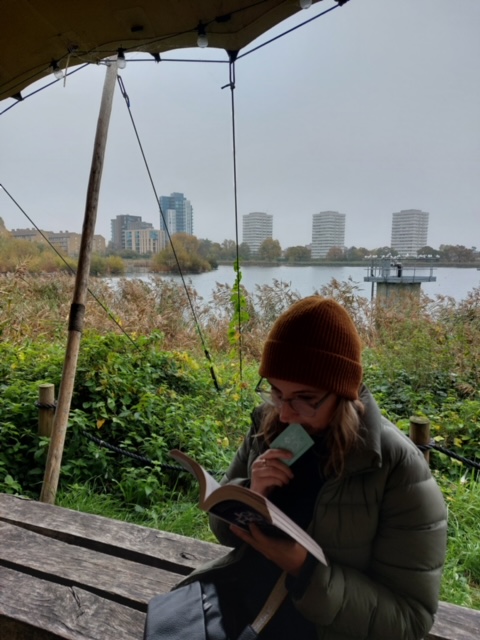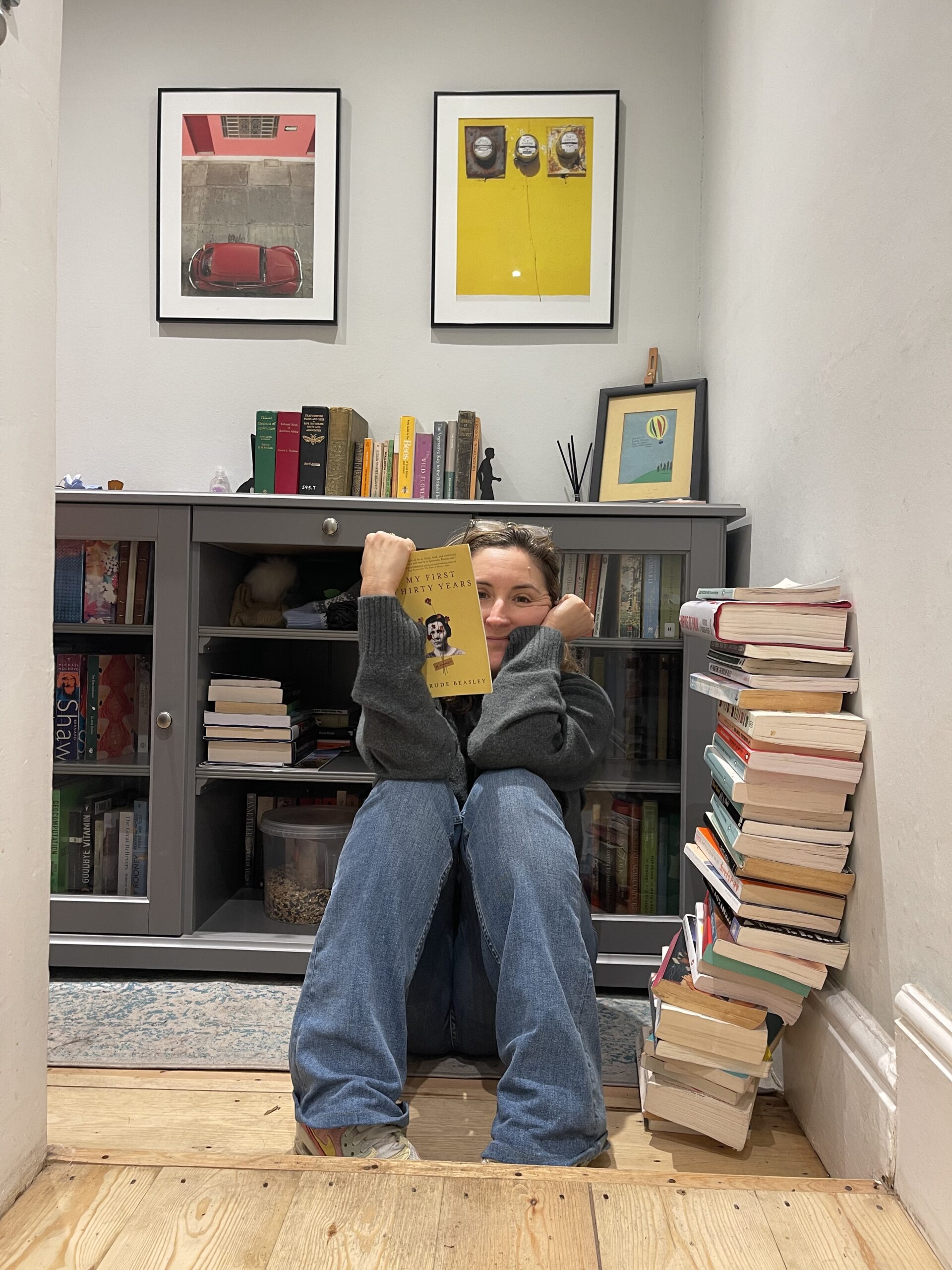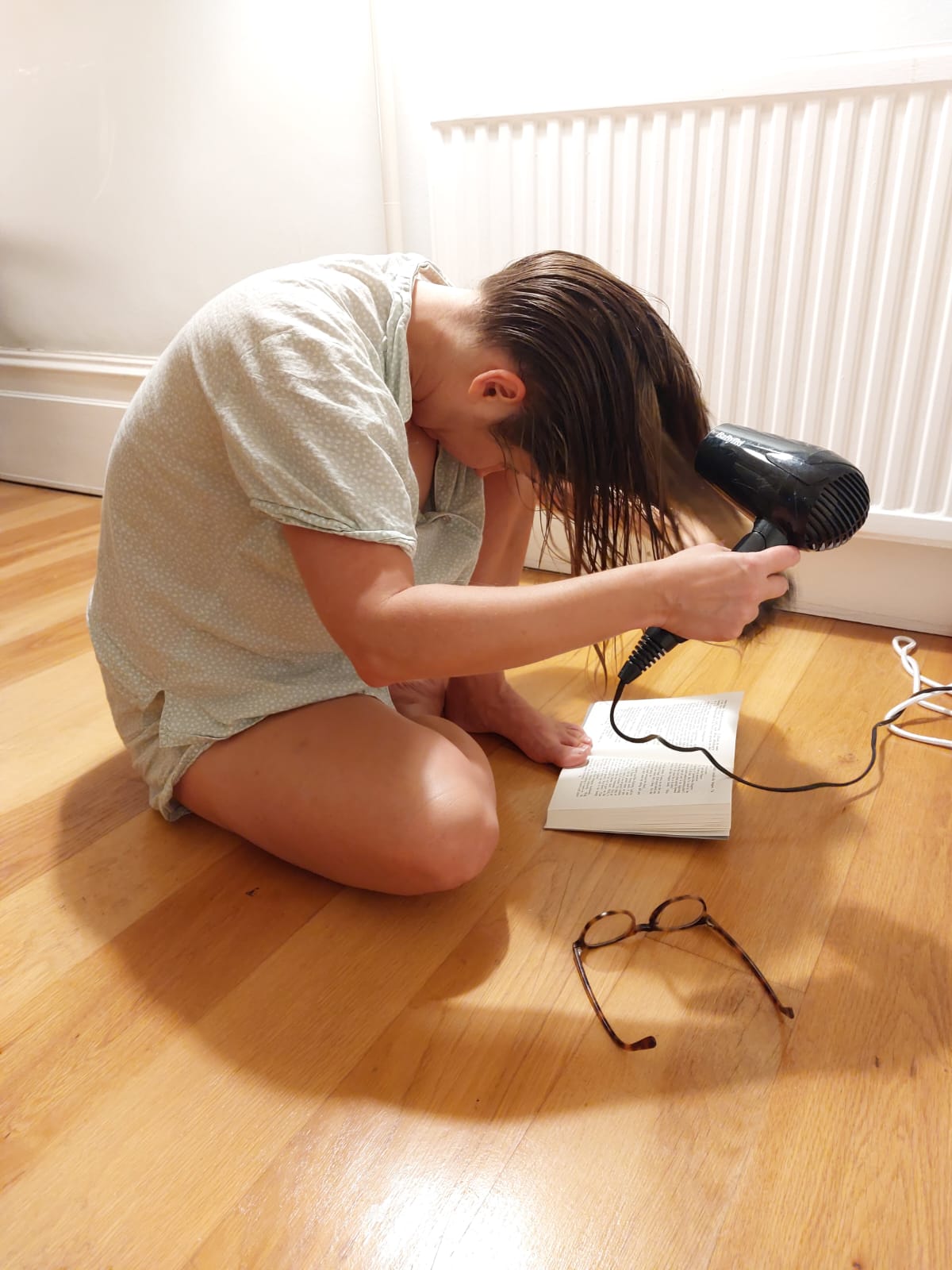Another one form Covid. It was about a couple of friends who go on holiday together every year. Kind of predictable but fun
Category: Uncategorized
HAPPY PLACE by Emily Henry
A book I forgot to blog, read in Covid, added her for the record. It was kind of a sad one about how impossible people seem to find long distance
YOU, AGAIN by Kate Goldbeck
I had Covid (second time round) and felt dreadful, so decided to read this fun romcom recommended to me by Instagram. I’ve never read anything quite like it before. I think it is what is called commercial fiction, and I am ready for MORE. It was a sort of classic friends-to-lovers story, and it was a towering achievement of EDITING. There was nothing in it that was not fun, funny, or moving the plot forward. The time flew by. TOLSTOY TAKE NOTE. It is not easy to cut a story down to only the parts you want to read. Now to be fair, I cannot any more recall much about what it was about, or the characters, or anything, but it passed the time most delightfully
THE MARCH by EL Doctorow
A novel showcasing a really remarkable skill. It tells the story of Sherman’s march south during the American civil war through many tiny vignettes of people of all kinds. What artistry! What ability! I don’t know who this EL Doctorow is, but he is amazing.
Writing aside, it was also interesting to learn more about the war. Sherman apparently went along burning down houses and towns to get the South to surrender, only not burning them down if the Southerners had already done it themselves. Particularly extremely heart-breaking to read about is how the slaves waited on their plantations for Sherman to arrive, and when he did, simply followed him away. It is just wild and sad and happy to read about their first days of freedom
THE RIVER AND THE SOURCE by Margaret A Ogala
Just a re-read of this, for the record
WHAT I READ IN 2022
Every year I enjoy this last post of the year, where I tot up everything I’ve read. It makes me feel like whatever else has been going on, at least I have not been totally wasting my time. I like looking at the pictures, which remind me where I have been physically, but even more looking at the titles, which remind me of where I have been not-physically. Greenland in the 1950s? Italy in the 1250s? Ohio in the opiod crisis? Stockholm in the middle of someone’s insane crush? I counted up and 15 countries are represented. To my surprise I also read a large majority of female writers (43 of the 69), and for the first time ever a big chunk was memoir or non-fiction. Best of the year was:
MY FIRST THIRTY YEARS by Gertrude Beasley, a mild-alteringly angry and inspirational memoir about overcoming poverty and the patriachy (before they catch up with you and throw you in an insane asylum)
MY PHANTOMS by Gwendoline Riley, which is a lacerating examination of a woman’s relationship with her mother. Small talk has never been so excruciating. Deservedly on many best-of lists this year
MRS PALFREY AT THE CLAREMONT by Elizabeth Taylor, a wonderfully funny and sad novel about the steely optimism needed to face old age
MICHEL THE GIANT: AN AFRICAN IN GREENLAND by Tete-Michel Kpomassie, a book about how you can live the life of your wildest and most eccentric dreams. Written by someone who should be considered an African ICON.
WILFUL DISREGARD by Lena Andersson, which shows how love can be madness, and not in a cute fun way. Shows how easy it is to slip into mania, be it a about the second coming, hand washing, or, as in this case, about a boy
That’s just the short list, not even getting into THE MERCHANT OF PRATO (most complete documented account of a Medieval life) I’M GLAD MY MOTHER DIED (memoir of child star), or GIOVANNI’S ROOM (being gay not easy).
That was 2022. I’m surprised I didn’t read more, given how long I was sick with Covid. But I guess reading takes a certain kind of focus. Here’s to a better 2023.
Full list:
- BURMESE DAYS by George Orwell
- THE GREAT FIRE by Shirley Hazzard
- SMALL THINGS LIKE THIS by Claire Keegan
- EAT PRAY LOVE by Elizabeth Gilbert
- MY FATHER’S DIET by Adrian Nathan West
- THE PURSUIT OF LOVE by Nancy Mitford
- EILEEN by Otessa Moshfegh
- REVOLUTIONARY ROAD by Richard Yates
- THE GRASS ARENA by John Healy
- MY PHANTOMS by Gwendoline Riley
- FLUDD by Hilary Mantel
- THE RUIN OF ALL WITCHES by Malcolm Gaskill
- ORIGINAL SINS by Matt Rowland Hill
- I’M GLAD MY MOM DIED by Jeanette McCurdy
- THE HOUSE BY THE DVINA by Eugenie Fraser
- THE GROWING PAINS OF ADRIAN MOLE by Sue Townsend
- MY FIRST THIRTY YEARS by Gertrude Beasley
- OCTOBER’S CHILD by Linda Bostrom Knausgard
- HAPPY ALL THE TIME by Laurie Colwin
- SISTERS BY A RIVER by Barbara Comyns
- THE KRAKEN AWAKES by John Wyndham
- QUARTET IN AUTUMN by Barbara Pym
- SELECTED STORIES by Dorothy Parker
- GIOVANNI’S ROOM by James Baldwin
- ACTS OF INFIDELITY by Lena Andersson
- THE CHRYSALIDS by John Wyndham
- MEATY by Samantha Irby
- MISS PETTIGREW LIVES FOR A DAY by Winifred Watson
- CARNIVAL OF SNACKERY by David Sedaris
- THE MINISTRY OF FEAR by Graham Greene
- THEIR SOULS AT NIGHT by Kent Haruf
- CODES OF LOVE by Hannah Persaud
- MARY BARTON by Elizabeth Gaskell
- WILFUL DISGREGARD by Lena Andersson
- WE ARE NEVER MEETING IN REAL LIFE by Samantha Irby
- PERSUASION by Jane Austen
- NOTES ON A SCANDAL by Zoe Heller
- THE SECRET DAIRY OF ADRIAN MOLE AGED 13 AND 3/4 by Sue Townsend
- FIRST LOVE by Gwendoline Riley
- THE SHOOTING PARTY by Isabel Colegate
- THE NEW ME by Halle Butler
- A TIME TO BE BORN by Dawn Powell
- THE VET’S DAUGHTER by Barbara Comyns
- A GLASS OF BLESSINGS by Barbara Pym
- SINS OF MY FATHER by Lily Dunn
- THE SHELTERING SKY by Paul Bowles
- KLARA AND THE SUN by Kazuo Ishiguro
- LADDER OF THE YEARS by Anne Tyler
- THE MERCHANT OF PRATO by Iris Origo
- YOUNG MUNGO by Douglas Stuart
- IN THE DISTANCE by Hernan Diaz
- THE IDIOT by Elif Batuman
- MICHEL THE GIANT: AN AFRICAN IN GREENLAND by Tété-Michel Kpomassie
- HOW GREEN WAS MY VALLEY by Richard Llewellyn
- DID YOU HEAR MAMMY DIED by Seamas O’Reilly
- GONE WITH THE WIND by Margaret Mitchell
- STOLEN FOCUS by Johann Hari
- OF LOVE AND HUNGER by Julian MacLaren-Ross
- MRS PALFREY AT THE CLAREMONT by Elizabeth Taylor
- EMPIRE OF PAIN by Patrick Radden Keefe
- LUSTER by Raven Leilani
- DEVOTION by Madeline Stevens
- THE BEAUTIFUL AND THE DAMNED BY F Scott Fitzgerald
- LOVE IN THE BIG CITY by Sang Young Park
- TRAVEL LIGHT, MOVE FAST by Alexandra Fuller
- THE VIRGIN SUICIDES by Jeffrey Eugenides
- IN A SUMMER SEASON by Elizabeth Taylor
- THE BEST OF ME by David Sedaris
- BEST YEAR YET by Jenny Ditzler
BEST YEAR YET by Jenny Ditzler
Read for the third time for making of new year’s resolutions
THE PURSUIT OF LOVE by Nancy Mitford
Just a re-read for comfort while I was sick
MEATY by Samantha Irby
Just a re-read of this.
WILFUL DISGREGARD by Lena Andersson
This book shows how love is a madness, and not in a cute fun way. This woman meets this semi-famous artist (I mean, let’s not be silly: artists not famous, except in a tiny bubble, but anyway she lives in that bubble). They go out to dinner a lot, talk a lot, but nothing HAPPENS. Then finally things HAPPEN, like three times, and then doesn’t call her very much and she loses her shit.
Thank god she does not do anything publicly embarrassing (e.g., cry at party) but she is a mess: thinking about him obsessively, changing her life to be nearer him, writing him lengthy and shameful emails about ‘their relationship’ Most harrowing is how the cycle repeats: every time she is about to break free, he offers her a little hope, and it begins again. To me it is obvious that he is enjoying the attention, and does not care what it costs her. (You can tell it is a good book because I am talking about it like I know them).
It’s a really unsettling book, because it shows how easy it is to slip into mania, be it about hand washing, about the second coming, or, as here, about a boy.



